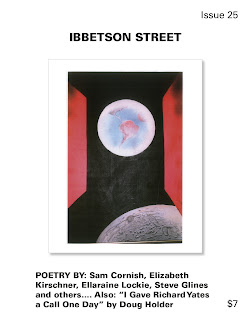
A fellow Bagel Bard, the poet Lawrence Kessenich recommended that I go for a stay at Wellspring House, a retreat for writers in Ashfield, Mass. I sent out my writing resume and I was on the road to my first writer's retreat. I noticed in the guest book a lot of talented folks stayed at this retreat over the years. Anyway I got to speaking to the founder of Wellspring House Preston Browning. Browning has a distinguished career as a writer and an academic himself. His wife Ann Hutt Browning (who cofounded the retreat) had a manuscript of poetry she was shopping around, and Browning asked me if I wanted to take a look. I gave it to my two trusty editors to look at it: Dianne Robitaille ( My wife) and Richard Wilhelm. The result: we are going to be publishing Ann Hutt Browning’s collection “Deep Landscape Turning.”
Ann Hutt Browning has two master’s degrees, one in psychology and one in architecture, four grown children, three grandchildren, and one husband of 50 years. Born in England, raised in southern California, she attended Radcliffe College, and has lived in Missouri, Kentucky, France, Macedonia, Chicago, Virginia and now Massachusetts. Some of her poetry has appeared in the Carolina Quarterly, Salamander, Peregrine, the Southern Humanities Review and the Dalhousie Review.
AN ORDINARY LIFE (From the manuscript)
When she awoke in the morning
She threw back her all cotton sheet,
Cotton woven in a far off country
By a dark skinned girl chained to her large loom.
When she went into her kitchen
She ground beans to brew her coffee,
Beans grown, roasted in a far off country
Where the tall trees were cleared off the land
For the coffee bushes to be planted
And tended by boys not in school and men
Old before their time and where all the waste
From treating the beans is flushed and dumped
In the river, adding that detritus
To the human waste and chemical run
Off already there in the gray water
And where downstream others used the water,
That dark water, for cooking and bathing.
After her children boarded the school bus,
Wearing clothing made in the Philippines,
Mauritania, Taiwan, a hodge-podge
Of imports from other worlds, far off countries,
Where sweat shops flourished,
Filled with child workers,
She went shopping:
Guatemalan cantaloupes, Mexican tomatoes,
Chilean oranges, California lettuce,
Carolina rice, Michigan peaches,
Blueberries from Maine, all bought because
In her garden she grew hybrid tea roses,
Siberian iris, cross-bred daylilies in six colors,
Held down by pine bark, chipped in Oregon.
Then she roamed the market aisle marked
"Special," and bought a basket, its colors
Imitative of Mexican folk art, made in China,
The price suggesting child or prison labor
Dyed the fronds of grass, wove the basket
And attached the label.
She ate a quick lunch of a hamburger,
The ground beef from a far off country
Where the virgin forest was burned off
So cattle could graze on tropical grass,
The bun made from Canadian wheat
And the ketchup, again those Mexican tomatoes.
She drove home to prop up her feet
On the foam cushioned sofa, turn on the TV,
Assembled in Nicaragua,
In a maquiladora by a woman
Who rose at five a.m. to walk three kilometers
To the bus, who then rode twenty-five miles
To the factory in the tax free zone,
Who worked from eight to five
With a quarter of an hour to eat
Or use the toilet,
Who got home at eight o’clock
To bathe and feed her three children,
With eighteen cents an hour in her pocket
On good days.
The woman on the sofa
Watched two soap operas
As usual on a week day,
And ate ice cream,
American ice cream.
She liked American ice cream.
She lived an ordinary life.








































